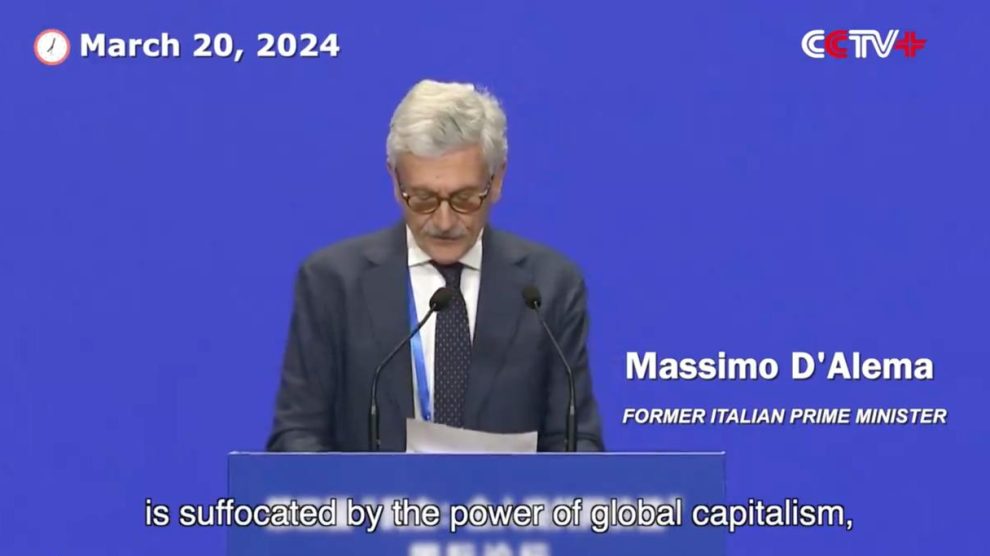Some love stories never end – but they do shift. In the current post-ideological scenario, the strongest ideologies (and therefore the most appealing to some) seem to be anti-Americanism and leaderism. They often come together and gather support on both the left and the right. In Italy, nowhere is this clearer than the anti-US and post-communist axis, tinged with Russian and Chinese aspects, that unites Giuseppe Conte and Matteo Salvini, leaders of the Five Star Movement (M5S) and League respectively.
It’s always those two. One need only think of their positions towards leaders such as China’s Xi Jinping and Russia’s Vladimir Putin, both of whom are committed (in differing ways that often intersect and complement each other) to undermining the international order and re-write its rules in their favour.
- Messrs Conte and Salvini were close allies in 2018-2019, when the former was Prime Minister and the latter Deputy PM. During that period, Rome entered Beijing’s Belt and Road Initiative and fostered closer ties with Moscow.
- Over the past two years, time and again, their parties have opposed (to differing degrees) supporting Ukraine against the Russian invasion.
An unexpected leader. Most recently, their ideological entente found an expression of natural leadership: that of former PM Massimo D’Alema, the only one with a past in the historic Italian Communist Party to hold that office. On Wednesday, as PM Giorgia Meloni was participating remotely at the third Democracy Summit launched by the United States, her predecessor was speaking at the third Democracy Forum organised by China.
- The latter is Beijing’s response to Washington’s platform for dialogue between democracies, doubling as a way to signal that China is also a democracy, albeit with its own characteristics, and that the West should not impose its version of it.
He said what, now? Quoting economist Joseph Stiglitz, Mr D’Alema said that “one head, one vote” in Western democracy has degenerated into “one dollar, one vote”. Indeed, through the control of modern media, “oppressive” money has become increasingly capable of manipulating and conditioning political opinions, he maintained. However, as Western democracy declines, some Western countries continue to consider democracy a Western value and wave it as a flag to oppose other countries, he continued, warning that some of them are actually building a “new Berlin Wall” that will make international cooperation difficult for all.
- The former Italian PM noted that at the national level, Western countries must re-establish democracy through public policies to alleviate inequality and social injustice.
- On the international stage, he spoke of the urgent need for open dialogue, instead of ideological opposition, between different cultures and civilisations.
- The Western model “cannot be exported and imposed in other parts of the world, as the experiences in Afghanistan or Iraq or the Middle East have shown in recent years,” D’Alema said again, speaking in English.
Guess who liked that. It is no coincidence that his words were widely echoed in Chinese State media, where propaganda narratives have long been pushing this exact line. Something similar happened with Mr Salvini’s recent words of praise for the presidential elections in Russia (“When people vote, they are always right”), which have been on display for days on the Kremlin’s news outlets.





